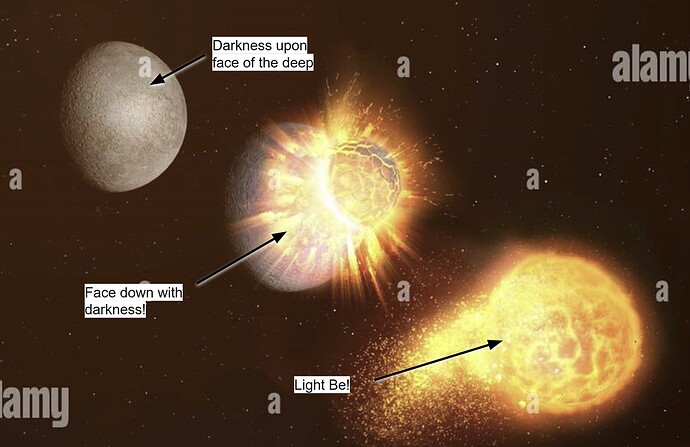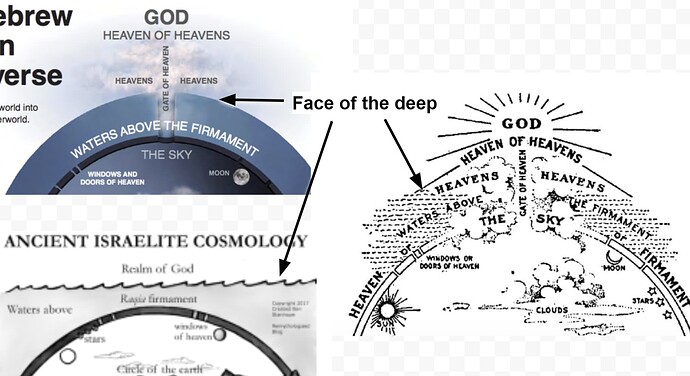I am not trying to change the original meaning of the words but reinterpret them. Case in point:
I see modern science as being like a new language, a new tongue that has emerged in the last 200 years or so… So we need to reinterpret the Word of God with the guidance of His Spirit.
- Acts 2:4 And they were all filled with the Holy Ghost, and began to speak with other tongues, as the Spirit gave them utterance.
The task is to figure out what it means to the original audience so we can reinterpret it, otherwise it is meaningless to us.
It is the Holy Spirit within us that confirms that the Bible is the Word of God.
- 2 Tim 3:16 All scripture is given by inspiration of God, and is profitable for doctrine, for reproof, for correction, for instruction in righteousness:
It does not say anywhere that it is the waters above. I have search and it is only described as being below. The OP diagrams are not even correct.
So God started out small forming this gap in an endless deep fluid? I don’t believe that. I don’t know where you are getting this from but it is not from scripture. Its completely different from big bang theory also where all matter expanded from a singularity.
qavah 6960 - wait for (probably originally twist, stretch, then of tension of enduring, waiting:
It sounds more like waiting and tension building up pressure to push up and burst forth. The land has to be pushed up. Water is not going to just pile up on the sides without the land being pushed up. There is this thing called gravity.
All matter including the sun, moon, stars and the unformed earth were created in the beginning. The creation days are putting what He created in order. God is just giving them purpose to shine on the earth (land that appeared on day 3) and to be used for time and seasons.
- Gen 1:16 And God made two great lights; the greater light to rule the day, and the lesser light to rule the night: he made the stars also.
This is narration, telling the reader that God had also created what He is setting in order on day 4, not that He created it right then on day 4. Forcing scripture into saying God didn’t create the celestial bodies until day 4 is calling God a liar, because we know better.

